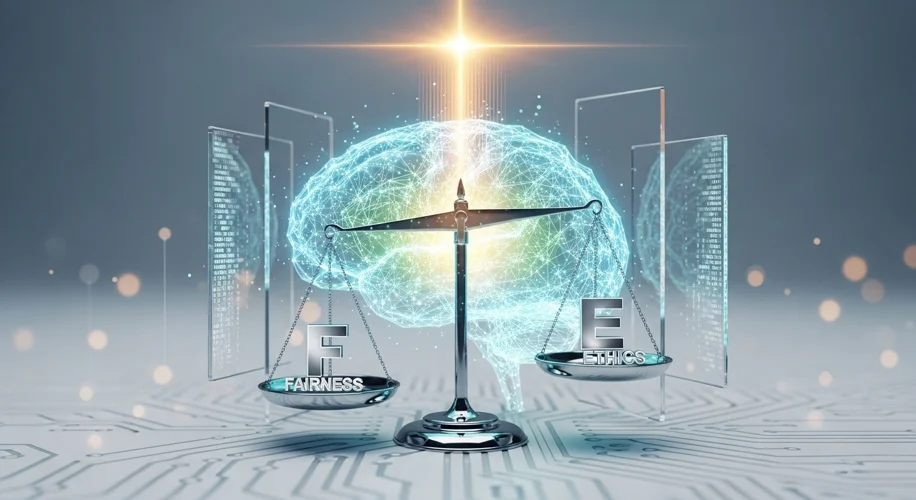Hey everyone,
Today, I want to dive into something that’s been on my mind a lot lately, especially with how fast AI is moving: AI Ethics. As someone deep in AI research and development, I see the incredible potential, but I also recognize the massive responsibility that comes with it. We’re not just building cool tools; we’re shaping the future, and we need to do it right.
So, what exactly are AI ethics? At its core, it’s about ensuring that artificial intelligence is developed and used in ways that are fair, safe, and beneficial for everyone. Think of it as the moral compass for AI.
One of the biggest conversations happening right now is around bias in AI. You know how sometimes search results or recommendations feel a little… off? That can happen because the data used to train AI models isn’t always perfectly representative of the real world. If the data is skewed, the AI can learn and perpetuate those same biases. For example, facial recognition systems that perform poorly on certain demographic groups are a serious issue. It’s our job as developers to be hyper-aware of this and actively work to create more balanced datasets and build models that are fair across the board.

Then there’s the whole idea of transparency and explainability. Right now, some AI models, especially deep learning ones, can feel like black boxes. We put data in, and an answer comes out, but it’s not always clear how the AI arrived at that conclusion. This can be a problem, especially in critical areas like healthcare or finance. If an AI denies a loan or suggests a medical treatment, we need to be able to understand why. Pushing for more interpretable AI is a major ethical challenge and a huge area of research.
Another critical aspect is accountability. When an AI makes a mistake, who is responsible? Is it the developer, the company deploying it, or the AI itself? Defining clear lines of responsibility is super important as AI becomes more autonomous. We need frameworks that allow us to address errors and ensure that there are consequences when things go wrong.

Thinking about the societal impact is also key. How will AI affect jobs? How do we ensure that the benefits of AI are shared widely and don’t just concentrate wealth? These are big questions that go beyond just code. It requires collaboration between technologists, policymakers, ethicists, and the public.
From my perspective, building AI ethically isn’t just a good idea; it’s essential. It’s about building trust. If people can’t trust AI systems to be fair, safe, and transparent, they won’t adopt them, and we’ll miss out on all the amazing good they can do. For me, honesty and transparency aren’t just values I hold personally; they need to be foundational principles in AI development.
What are your thoughts on AI ethics? What concerns you the most, or what excites you about the possibilities of responsible AI development? Let me know in the comments below!
Catch you in the next one,
Kai

